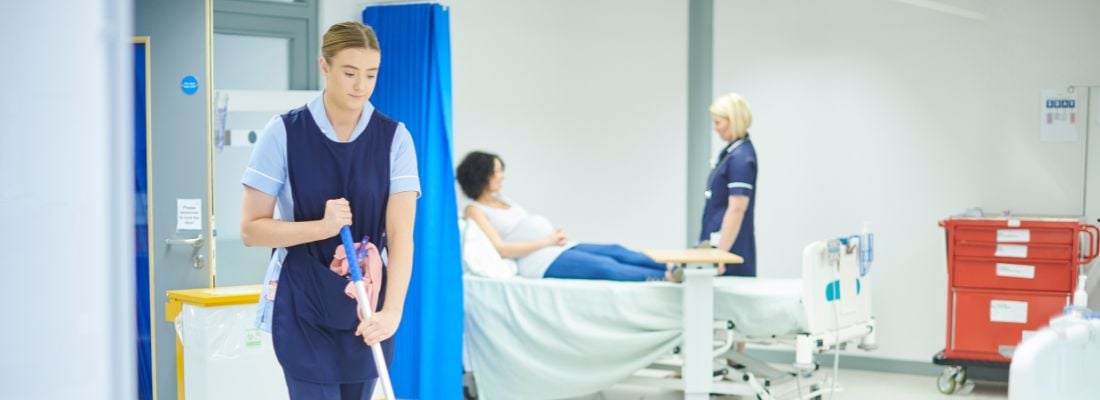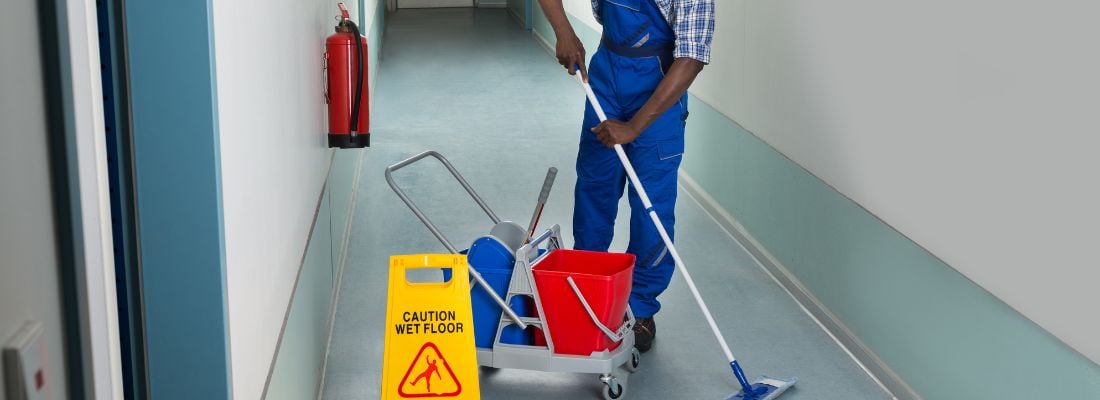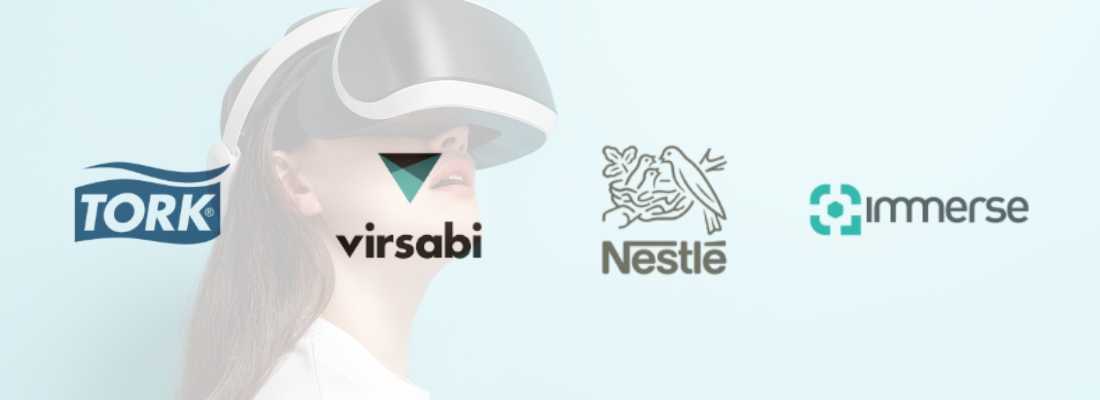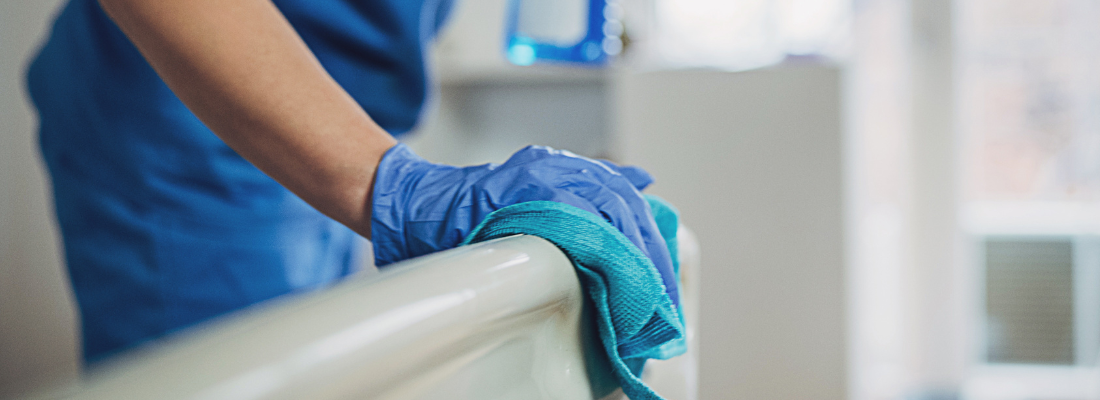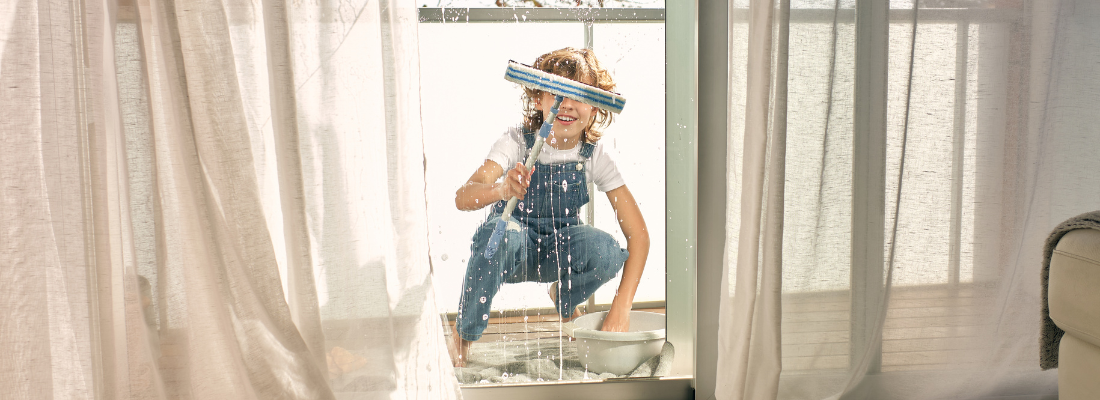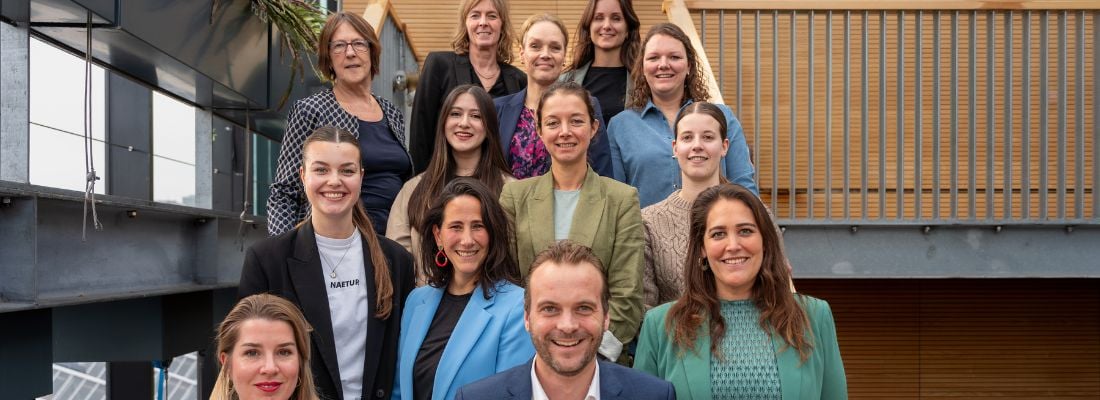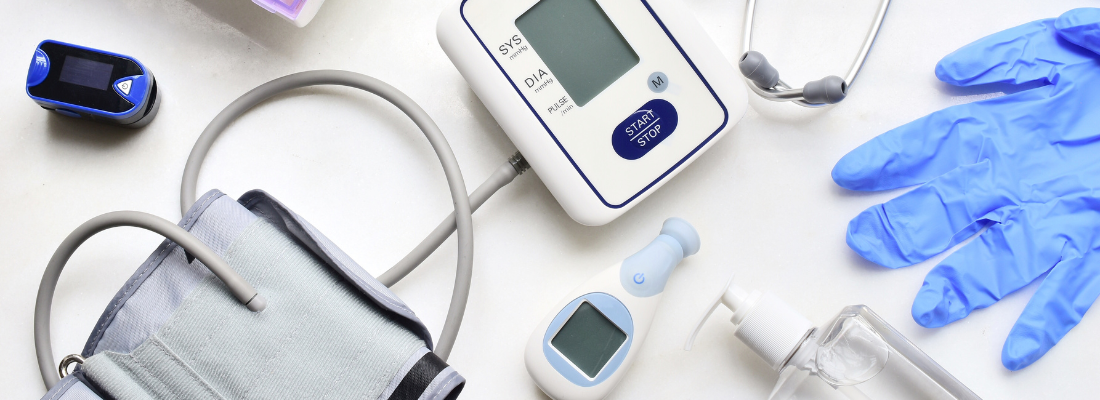How cleaners can work in the care sector | Meta Boelens - CSU
Interclean spoke with Meta Boelens, care sector manager at cleaning service provider CSU, about the challenges and developments cleaning service providers face within the healthcare sector. The most important challenge to overcome according to Meta: focussing on how cleaning can support care institutions more broadly.
Meta Boelens studies and analyses the Dutch healthcare sector, and speaks with many healthcare institutions, both customers and non-customers of CSU. Her goal? To anticipate by thinking about new concepts that improve the healthcare sector, from the perspective of cleaning services. “Many care institutions are traditionally organised, and we have to think broader than that to get any further in the future”, says Meta. "I am currently working on integral process management, so I try to get in touch with many stakeholders in the healthcare sector to see what outside-of-the-box possibilities there are to improve the ways of working and optimize processes.”
The biggest challenge for cleaning service providers in the care sector
Although the labour shortage plays a major role in today’s healthcare sector, this is not the biggest challenge according to Meta. “The biggest challenge for CSU as a cleaning service provider is on the ways of working within care institutions. I believe cleaners could play a substantial part in the efficiency of the care process, besides the importance of hygiene itself. I believe cleaners should become part of the care team within these institutions. This creates better communication with greater interpersonal understanding and increased collaboration. But it is very difficult to get all stakeholders within the care sector on board of that story.”
This is mainly difficult because every stakeholder has different interests. Meta explains: “All stakeholders are concerned with their own department. "Only from all those interests together there is a hook to the solution, and that solution is often integral. We can provide a missing piece of the puzzle in the whole process that reduces the integral care costs. At the bottom line, the institution earns money with the new ways of working. The problem is that they are stuck in their own internal structure."
Not all healthcare organisations are resistant to this new way of working. More and more care institutions want to enter the dialogue with cleaning service providers. The small first steps that are possible already should consist of cleaners carrying out non-patient related tasks as part of their work, according to Meta. “If you look at care assistants or residential care supervisors, then their tasks also include many logistical and facility related processes. For example, bringing blood samples to the lab, organising the laundry or the restocking of towels. But also when a patient leaves the room and the room needs to be cleaned or the bed needs to be changed. Those kind of tasks, not directly related to the patient, could be done by the cleaner.”
But there is one other factor that plays a role in this, according to Meta. “The care funding also creates partitions within the healthcare. Sometimes care tasks that are very similar are funded differently by the government, because they fall under a different law, which in turn creates ambiguity."
Include cleaners in all facility tasks done by medical staff, not just cleaning
The ultimate goal would be to include the cleaners in the care process. Meta explains: “The ultimate goal would be that we, as a cleaning service provider, substantially contribute to a more efficient care process. That we as an external party are not just the external party, but that the cleaners are involved in the care-taking of patients. Our cleaners can have an enormous added value in the care process. When I think of all the qualities they have, I think: Let’s use them! The healthcare sector can use the cleaning staff because patients often tell them things while they are cleaning. The information they share with the cleaner is not shared often with nurses, since a cleaner usually does not hurt the patient. In this way, a cleaning worker can contribute to the patient's recovery or well-being and can definitely contribute something to the care process."
Often healthcare cleaners have a heart for the care sector
The need to be included in the care process is also there from the cleaners. Often, cleaners in healthcare would like to do more tasks besides the cleaning itself. “Right now, the cleaners are deployed on scheduled cleaning, and the non-schedulable cleaning is often still within the care institution. As a result, the cleaners have completely lost contact with the institution they work in. Because they do not participate in the processes. And often they want to be involved. They want to be part of the care team.”
Meta already sees this happening in some hospitals. “In some care institutions for example, the cleaners are part of the staff meeting at the start of the day. They then hear a patient is leaving the room at 11 o’clock, and know exactly when to enter the room to start cleaning, if this does not come via a notification on their phones as we nowadays work digital with sending out information to the cleaners. By making cleaners part of the care team, you get more efficiency.”
Often, cleaners in the care sector have deliberately chosen this sector. “Not every cleaner is suitable to work in healthcare. Cleaners in the care sector have often deliberately chosen this, because otherwise they would have started cleaning in a hotel, for example. They want to matter, and mean something to the patients. We often notice that they also want to be given the opportunity to grow into the position of care aid. We offer them that opportunity.”
The benefit for care institutions
Giving the cleaners more logistical and facility related tasks gives the healthcare workers and nurses more time to focus on their care tasks. “To give the cleaners these type of tasks is more efficient, because the focus of a facility service provider is already on hygiene, cleaning, logistics and facility processes. The nurse is now doing all sorts of extra tasks that do not directly interface with what they have been trained for.”
Besides that, it will save the care institution money. Meta explains: “The reason these tasks are often still carried out by the healthcare staff is that the care institutions prefer do it themselves. This is often financially driven, as the institution only has a certain amount of money to spend. They often don’t want to move money from the medical department to the facility department. But in the end, looking at it from integral process management, it is always cheaper to have this type of work done by the facility department, even if you outsource it.”
Data collection during cleaning
A trend that also improves the efficiency of work that Meta sees quite often is the collection of data during the cleaning. “What we see a lot is the entry of technology into our work. The work of the cleaner is therefore changing considerably. During the cleaning they can collect data. For example, during the cleaning they see that a lamp is broken. They then report this in the system on a smartphone they bring. So it’s not just cleaning the rooms, but also ensuring an optimal situation and experience for the patient in between.”
CSU is currently working on a new service concept regarding data collection while cleaning. Meta tells more about this new concept: “It works like this: a cleaning employee routinely cleans in rooms. Then, he receives a message on his phone that a patient has left a room and the bed can be cleaned. The cleaner will then go to clean the IV pole and bring it to the storage room.
There are thousands of medical devices in a hospital. This way, all the tools are quickly registered and brought to the right place. Hence nurses will never miss out on a clean device in the storage room. We are currently conducting a pilot with this new way of working including the platform with data. With this collection of data through this concept, and a different perspective on facility management, we will make the healthcare better together!”
